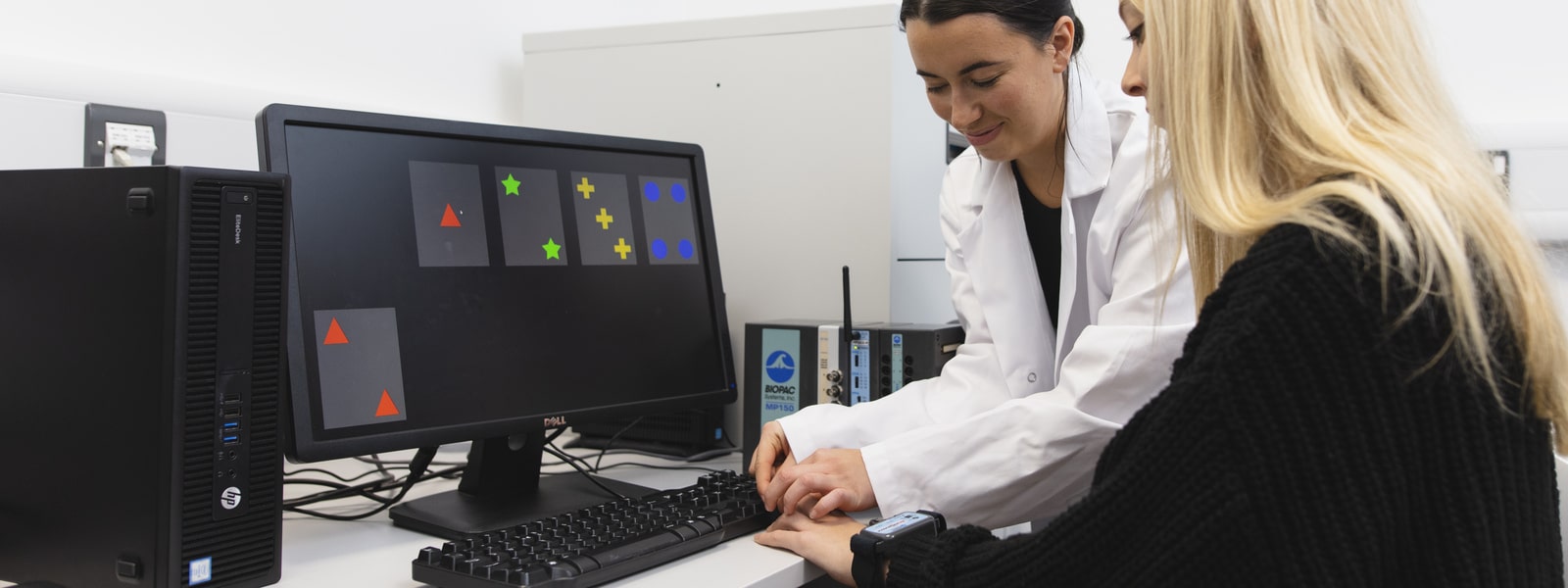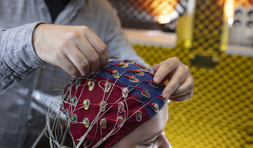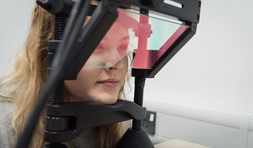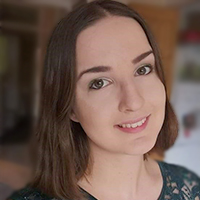Module Overview
The module is designed to cover the relevant evidence for working with different forensic interventions and general information relating to assessment and motivational engagement in forensic settings. Initially students have an opportunity to develop their knowledge of problem formulation. Later students may examine in detail some approaches to treatment and therapy used in forensic settings. This aims to include specific information about a range of different client groups including: sexual and violent offenders; individuals with personality disorder, mental illness and learning disability; as well as women offenders, arsonists and individuals with drug and alcohol problems. For each of these groups, students have the opportunity to develop knowledge regarding what is effective with each client group (including the appropriate assessment and intervention methods). There is the opportunity to hear practice issues from professionals working in forensic practice, as practitioners will deliver the majority of lectures.
Module Overview
This module aims to draw on aspects of cognitive and clinical neuropsychology to examine the consequences of brain dysfunction. A particular focus will be upon the interdependence of clinical and experimental neuropsychology, and it is within this context that the role of neuropsychology in research, diagnosis and patient management can be explored.
Module Overview
Students will conduct their own research which will culminate in the production of a dissertation. This module is designed to test a student’s ability to identify an appropriate research question and to design and implement an appropriate study.
Module Overview
This module is designed to give students the opportunity to develop a critical awareness and understanding of psychological issues typically related to the assessment, perception, communication, management and governing of risk as it affects professional practices in such areas as public health, politics, the environment, science and technology, corporate communication, and clinical/forensic psychology.
Module Overview
In this module you can explore addictive behaviours, substance abuse, and dependence in society and consider their prevalence and treatment strategies. Whether looking at individual disorders or commonalities across all disorders, you can understand the risk factors for addiction, examine the limitations of biological explanations for addiction, and evaluate the development of the field of psychological study of addictions.
Module Overview
The aim of this module is to provide a comprehensive introduction to advanced multivariate techniques. The module seeks to explore the theoretical rationale underpinning each analysis.
Module Overview
This module specialises in presenting the psychological scientific foundations of 'intervention science' in an organisational context. It covers the process of developing interventions to investigate and address key organisational problems.
Module Overview
This module aims to develop understanding of the major approaches used in contemporary coaching psychology with a view to identifying and applying appropriate coaching interventions in response to real world problems and examine critically a range of psychological research and theories used in coaching in a variety of contexts, such as education, business, sport and health. It is delivered in two sections. The first covers conceptual and ethical issues in the practice of coaching psychology, such as measuring coaching effectiveness, ethics in coaching, the neuroscience underlying coaching practice, and cross-cultural issues in coaching. The second section offers a comprehensive examination of many approaches currently operating in Coaching Psychology: Person-Centred/Humanistic Approaches, Behavioural Coaching, Cognitive-Behavioural Coaching, Motivational Interviewing, Psychodynamic Approaches, the Gestalt Approach, Narrative Approaches, and Positive Psychology Approaches.
Module Overview
This module provides a critical evaluation of the way the Organisational Psychology literature approaches common workplace issues.
Module Overview
This module aims to examine the developmental disability of Autism (and Autistic Spectrum Disorders). It aims to cover a range of approaches to understanding Autism, from diagnosis and etiology.
Module Overview
This module is designed to develop understanding of body image and eating disorders. This module will typically cover their aetiology, diagnosis, assessment, and treatment in diverse populations including children, men, BAME (Black, Asian, Minority Ethnic)/POC (People of Colour) and LGBTQIA+. The module typically aims to give students an appreciation of the complicated and multi-determined field of body image and eating disorders; as well as the limitations of methodology both for clinical assessment and research paradigms. This module typically further aims to examine attitudes to eating, body shapes and sizes, their driving factors, and challenge the students to analyse and synthesise via exercises in seminars.
Module Overview
This module aims to build on the cognition of visual attention taught in year two. It aims to teach the developing understanding of the biological basis of visual attention. Features, i.e. lines, curve and areas are computed early in the visual system. This is not a passive process. Attention can be shown to influence, at a neurological level, the features that are computed. The module considers how this early processing leads to the representation of real world objects. The locus and functions of top down attentional biasing will also be examined.
Module Overview
This module is designed to introduce students to counselling theories and aims to help to develop introductory communication and counselling skills. A Person-Centred approach to counselling skills will be used and an important aspect of this module will be providing students with the opportunity of development of learning through self-reflection.
Module Overview
This module aims to provide students with the opportunity to discuss concepts, theories and research methods in cross-cultural psychology, including analysis of psychological definitions of culture and cultural variables. Specific topics in social and developmental psychology are considered from a cross-cultural perspective, for example, cultural values, social roles and relationships, family organisation, and selected topics in child development.
Module Overview
This module offers an in-depth review of the current literature on developmental cognitive neuroscience, using interdisciplinary approaches from research areas of cognitive psychology, neuroscience and child psychology. Students can consider several domains of cognition, such as vision, orienting and attention; memory and learning; knowledge of objects, faces and space. For each of them, consideration is given to questions such as: How is cognitive function represented in the developing brain? What kinds of developmental changes occur? What are the effects of different developing experience, including those presented by genetic deficits, environmental deprivation and brain damage? What is the developmental time course within which such damage can affect cognitive development?
Module Overview
This module aims to emphasise the importance of a developmental framework for understanding how children come to exhibit adaptive and maladaptive behaviour. The module will seek to address the changing nature of problems, influences and risk factors over the course of development.
Module Overview
This module aims to develop students' knowledge of the development, theory and applications of the Discourse approach, which is a growing field within psychology. The module aims to introduce the Discourse perspective, in which language is seen as a means for people to do social actions: from blamings and invitations, to the establishment and maintenance of social relationships.
Module Overview
This module explores contemporary research and understanding of the mind and brain through examining both molecular (neurotransmitter and drug function) and psychological (processes of sensation, memory, mood, consciousness) evidence.
Module Overview
This module aims to introduce students to Cognitive Behavioural Therapy (CBT) theory and practice and help them develop introductory therapy skills. Students can learn about the evidence base for CBT for a number of presenting mental health difficulties such as depression and anxiety. The module also looks at the strengths and weaknesses of this therapeutic approach. It offers an introduction to the therapeutic process from the assessment of a person’s mental health difficulty, through to CBT formulations of the presenting problem, some initial insight into CBT interventions, and finally evaluating therapy.
Students are taught within the reflective scientist-practitioner framework, which informs undergraduate psychology degrees at the University.
Module Overview
The module aims to introduce some of the key areas in Forensic Psychology that occur during the pre-conviction stage of a criminal investigation. Specifically, the module will focus on the police investigation and courtroom stage of the criminal process. It will explore a variety of established theoretical work and research within these domains and consider how this knowledge can be used to inform several key areas of the criminal investigation. The module will highlight the applied importance of Psychology to significant issues in the real-world.
Module Overview
This module is designed to provide a broad overview of this sub-field, which can be divided into three main areas; job related issues, inter and intra psychological issues, and workplace psychology. Theories from mainstream psychology aim to form the basis for a detailed discussion of key topics in occupational psychology.
Module Overview
This module will introduce the background, theories, and techniques of alternative methods of studying human behaviour, and understanding patterns of action. Patterns of Action seeks to understand why humans behave as they do in a range of contexts (from health and wellbeing, to forensic and criminal). Taking a broadly Systems Theory approach, methods for studying real-world phenomena in a scientific and rigorous way will be outlined and students will have the opportunity to become experts in cutting edge techniques that can be applied to real-world scenarios, rather than laboratory-based approaches.
Module Overview
This module presents a broad overview of these findings and theoretical perspectives, and considers how they help us to deepen our understanding of visual art. Students critically evaluate scientific approaches to understanding art during seminar discussions, and are encouraged to find and bring relevant examples of visual art to the discussion.
Module Overview
This module aims to offer students the opportunity to develop a theoretical understanding of the psychodynamic/psychoanalytic movement and its clinical applications.
Module Overview
This is a module designed to help students to develop their knowledge of human interactions and responses to music. Students will consider the ways in which we engage with, listen to, perform, and learn about music. It will aim to provide a better understanding the role music plays in attachment, emotion regulation, social affiliation, the neurological overlap between music and language processing, and the development of humans as a species who enjoy music. Through explaining the research underlying the Psychology of Music we also aim to provide an understanding of how this field builds on and connects with other areas in psychology.
Module Overview
This module aims to explore the science behind the effects that drugs have on mood, sensation, thinking and behaviour. The history and actions of medications currently in use for the treatment of mental health disorders will be described along with an overview of the known actions and effects of illicit drug compounds.
Module Overview
This module examines the potential benefits of sleep, focusing in particular on two areas. The role of sleep in memory and cognition will be explored in depth, followed by a wider examination of other benefits of sleep for well-being, which may include effects on mood, physical health and aspects of behaviour. Students will be introduced to the way in which sleep can benefit cognition and well-being and the experimental paradigms used to demonstrate this. The aims of the module are to consider in depth the potential role of sleep in both cognition and well-being, and develop the skills and knowledge that will enable the critique of the different approaches taken in this field leading to the ability to interpret and integrate current research findings and design original further research studies.
Module Overview
This module aims to build on the module, Brain Behaviour & Cognition. It applies that background knowledge to the topic of Sleep, Dreaming and Circadian Rhythms. The module aims to introduce students to the neurobiology of sleep and dreams. It also aims to integrate current understanding of key issues in sleep research such as the purpose of sleep and the role of dreams.
Module Overview
This module is designed to introduce the background, theories and techniques of Social cognitive neuroscience. SCN seeks to understand socioemotional phenomena in terms of interactions between the social (socioemotional cues, contexts, experiences, and behaviors), cognitive (information processing mechanisms), and neural (brain bases) levels of analysis.
Module Overview
This module provides an introduction to Solution Focused Coaching theories and practically trains you in basic implementation of Solution Focused Coaching skills. In addition, the module stresses the development of self-reflection, and experiential learning from practice. To this end the module describes and evaluates a range of solution focused coaching skills, and teaches the use and understanding of models of reflective practice applicable to professional coaching. The module will cover issues including contracting in solution focused coaching, the miracle question and constructing an agreed future, exception/instance finding and expansion, scaling techniques for coaching progress, concluding solution focused sessions, plus experiential and reflective learning models.
Module Overview
This module aims to represent advances in vision research through the research contributions made by staff delivering the module. Emphasis is placed on methodology and the results they generate and how these are used to in turn to both inform and challenge conventional theory.
Module Overview
Work experience is invaluable for undergraduate Psychology students as it has the potential to bridge the gap between academic learning and real-world applications. This module will provide you with the opportunity to enhance your practical, graduate level employability skills and insights that are not typically developed in traditional classroom settings.












